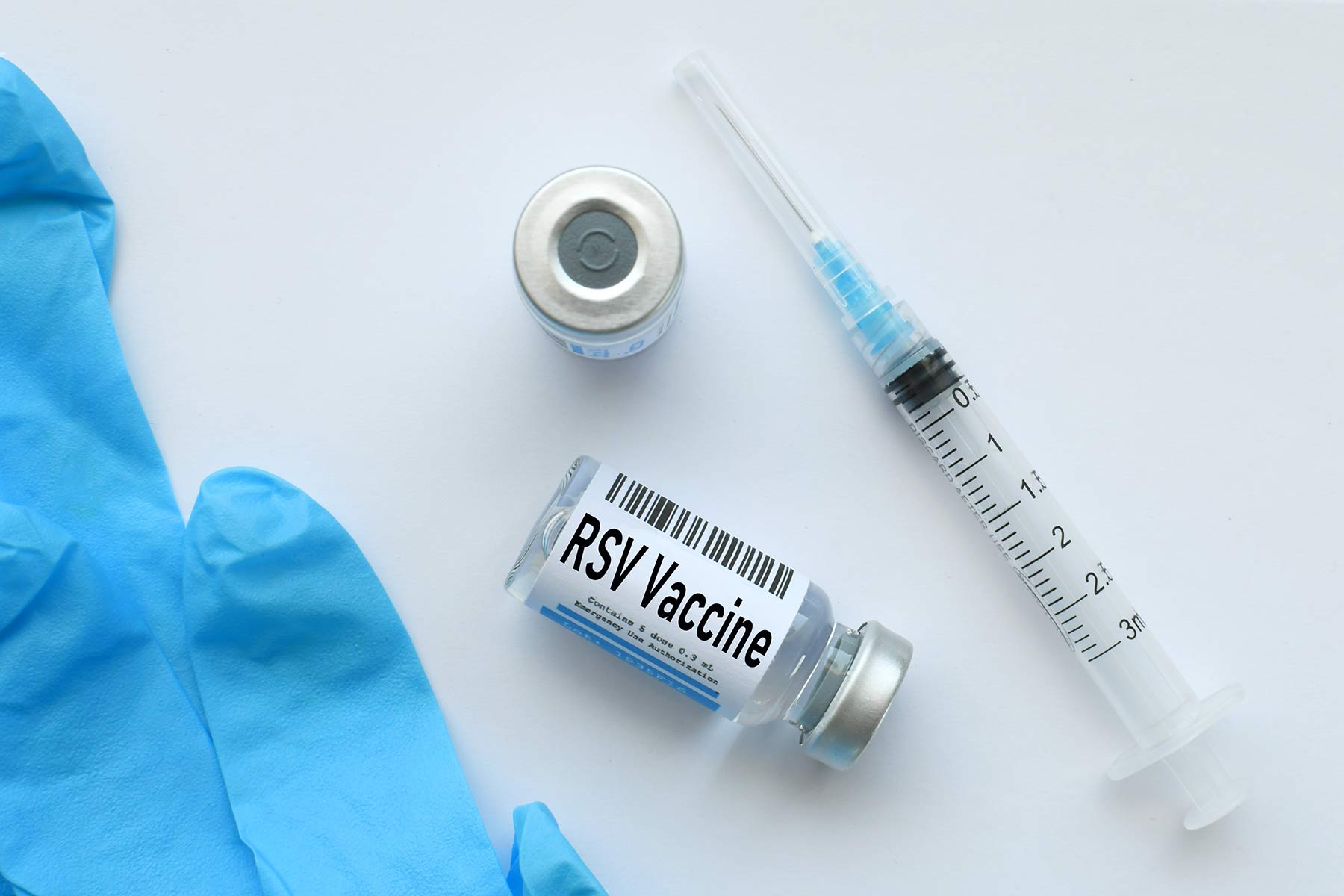
How much does the RSV vaccine cost?
How much does the RSV vaccine cost?
$300 – $550 average cost without insurance
$0 – $20 average cost with insurance
RSV vaccine cost
The RSV vaccine costs $300 to $550 without insurance. Medicare Part D and most private health insurance plans cover the full cost of the vaccine with no co-payment, though coverage varies by plan and provider.
The Respiratory Syncytial Virus (RSV) vaccine is available under the brand names AREXVY, ABRYSVO, and mRESVIA. There is no generic version of the vaccine available at this time.
| Insurance coverage | Average cost |
|---|---|
| Without insurance | $300 – $550 |
| With insurance | $0 – $20 |
What is Respiratory Syncytial Virus (RSV)?
Respiratory Syncytial Virus (RSV) is a common virus that infects the respiratory tract, including the nose, throat, and lungs. RSV is highly contagious and spreads through respiratory droplets when an infected person coughs or sneezes.
Most people recover from RSV within a week or two, but some may develop more severe complications such as bronchiolitis or pneumonia. RSV can be serious and even life-threatening for certain high-risk groups, including infants, older adults, and people with compromised immune systems or chronic health conditions.
RSV causes seasonal outbreaks during fall, winter, and spring months. The virus is one of the most common causes of childhood illness, with nearly all children experiencing at least one RSV infection by their second birthday.
What is the RSV vaccine?
The RSV vaccine is designed to protect against severe illness caused by the Respiratory Syncytial Virus. By stimulating the immune system to produce antibodies against the virus, the vaccine helps reduce the risk of serious respiratory complications like pneumonia and bronchiolitis.
Who should get the RSV vaccine?
The Centers for Disease Control and Prevention (CDC) provides these specific recommendations for RSV immunization:
Adults 60 and older: The CDC recommends RSV vaccination for all adults aged 75 and older, and for adults aged 60 to 74 with underlying health conditions such as chronic heart or lung disease, diabetes, or weakened immune systems.
Pregnant individuals: RSV vaccination during pregnancy (at 32 to 36 weeks) can protect newborns during their first months of life when they're most vulnerable to severe RSV disease.
Infants: The CDC also recommends an RSV antibody called nirsevimab for newborns whose mother did not receive the vaccine during pregnancy.
High-risk individuals: People with certain medical conditions, including chronic obstructive pulmonary disease (COPD), asthma, heart disease, diabetes, kidney disease, or immunocompromising conditions, may benefit from RSV vaccination regardless of age.
Healthcare workers: Some healthcare facilities recommend RSV vaccination for staff who work closely with high-risk patients.
It's important to consult with your healthcare provider to determine if RSV vaccination is appropriate for your specific situation and health status.

RSV vaccine FAQs
How long does the RSV vaccine last?
A single dose of the RSV vaccine provides protection against RSV disease for approximately two years for adults aged 60 years and older. Research indicates the vaccine's effectiveness may decrease over time, similar to other respiratory vaccines like the flu shot.
How often do you get the RSV vaccine?
The CDC currently recommends a single dose of the RSV vaccine for eligible adults. Adults who have already received one dose should not receive another dose at this time.
Unlike annual flu vaccines, RSV vaccines don't require yearly administration, but this guidance may be updated as scientists learn more about the duration of protection.
Is the RSV vaccine safe?
Yes, the RSV vaccine is considered safe. RSV vaccines have undergone rigorous safety testing in clinical trials involving thousands of participants. The most common side effects are mild and similar to other vaccines, including:
Pain, redness, or swelling at the injection site
Fatigue
Headache
Muscle pain
Fever
Serious adverse events are rare. The benefits of RSV vaccination in preventing severe disease, hospitalization, and complications far outweigh the risks for recommended populations.
Is the RSV a live vaccine?
No, the currently approved RSV vaccines are not live vaccines. They are either protein-based vaccines or mRNA vaccines that contain specific parts of the RSV virus or instructions for making RSV proteins, but not the live virus itself.
This means RSV vaccines cannot cause RSV infection and are safe for people with compromised immune systems.
Is the RSV vaccine covered by insurance?
Most health insurance plans cover RSV vaccines as preventive care, especially when administered to individuals who meet CDC recommendations. Under the Affordable Care Act, most insurance plans must cover vaccines recommended by the CDC's Advisory Committee on Immunization Practices (ACIP) without a co-pay.
Coverage may vary depending on:
Your specific insurance plan
Whether you receive the vaccine from an in-network provider
Your age and risk factors
State-specific insurance regulations
Contact your insurance provider to verify coverage and any potential out-of-pocket costs before getting vaccinated.
Does Medicare cover the RSV vaccine?
Medicare Part D (prescription drug coverage) covers the RSV vaccine and other vaccines recommended by the ACIP as preventive services.
For those enrolled in Medicare Part D, the RSV vaccine is covered at 100% with no co-pay when administered by a participating healthcare provider. However, it's always wise to verify coverage with Medicare or your Medicare Advantage plan before vaccination.
Where to get the RSV vaccine
The RSV vaccine is available at various healthcare locations:
Healthcare provider offices: Your primary care physician, family doctor, or specialist can administer RSV vaccines during regular appointments.
Pharmacies: Many major pharmacy chains offer RSV vaccination services, often with convenient walk-in availability.
Urgent care centers: Some urgent care facilities provide RSV vaccines alongside other preventive services.
Health departments: Local health departments may offer RSV vaccines, particularly for uninsured or underinsured individuals.
Employee health clinics: Some workplaces offer RSV vaccination through occupational health programs.